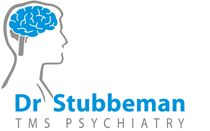
Tag Archives: TMS


New clinical trial investigates non-invasive treatment for depression and bipolar disorder at Black Dog Institute
TDCS is a very mild form of brain stimulation. The stimulation is painless and is given when a person is fully awake and alert with the stimulation session lasting 30 minutes.
May Is Better Hearing Month: Tinnitus Treatment Solutions Aims to Curb Noise-Induced Hearing Loss and Ringing in Ears
This May, Better Hearing Month, audiologists at Tinnitus Treatment Solutions (TTS) are encouraging people to protect their hearing...
Noninvasive Brain Stimulation Helps Treat Cocaine Addiction
Early results suggest that repetitive transcranial magnetic brain stimulation (rTMS) reduces both substance use and cravings in cocaine addicts, offering hope of a novel medical treatment for patients with this addiction.
People Fighting Depression Discover Little-Known Treatment
The treatment, repetitive Transcranial Magnetic Stimulation (TMS), could help many of the patients who remain trapped by major depression even after trying a whole menu of antidepress
TMS offers hope for depression sufferers
Transcranial magnetic stimulation, or TMS, is a relatively new treatment for depression. It produces magnetic pulses similar to those found in MRI machines, but precisely targeted to certain areas of the brain to produce a therapeutic response.
Brain Stimulation May Be Key to Full Recovery After Stroke
Most stroke patients stop improving after three months. Transcranial magnetic stimulation (TMS) may be a way to extend that deadline.
TMS Health Education Announces The Advanced Transcranial Magnetic Stimulation Symposium
SACRAMENTO, CA, December 23, 2015 /satPRnews.com/ — TMS Health Education, which offers accredited courses from the world’s leaders in Transcranial Magnetic Stimulation (TMS) announced that it will be hosting the first-ever Advanced TMS Symposium.
Your Brain Recovers Memories Faster Than the Blink of an Eye
Using a brain scanner, scientists have discovered that memories can be recovered in just a tenth of a second - around a third of the time needed to blink. Previous research had estimated this at around five tenths of a second. The researchers also found retrieval can be obstructed if the person is subjected to repetitive Transcranial Magnetic Stimulation (rTMS), in which a magnetic coil is placed on their head.
